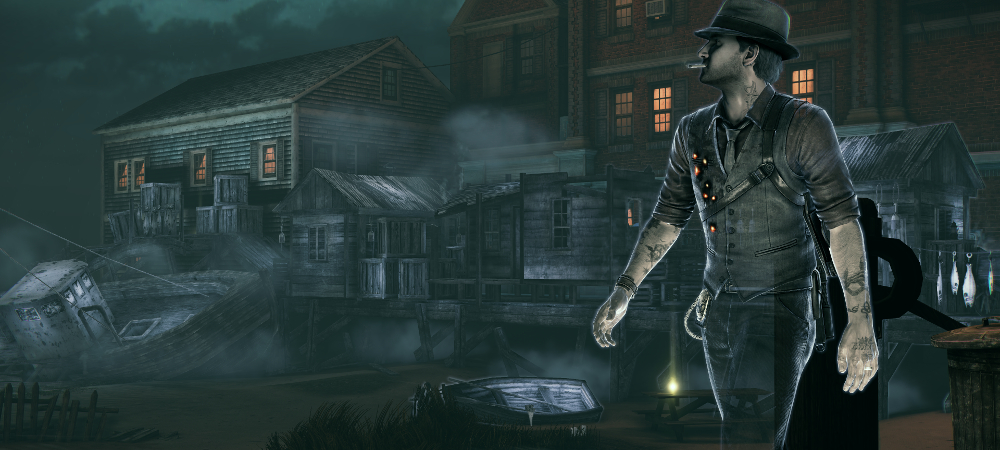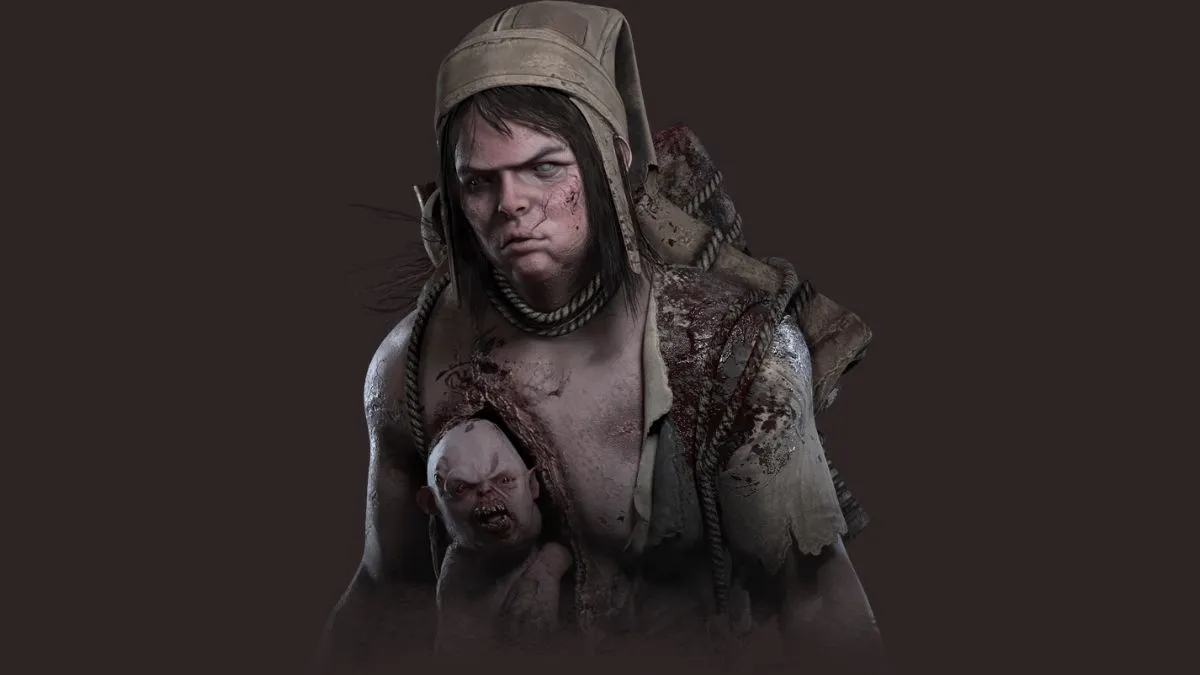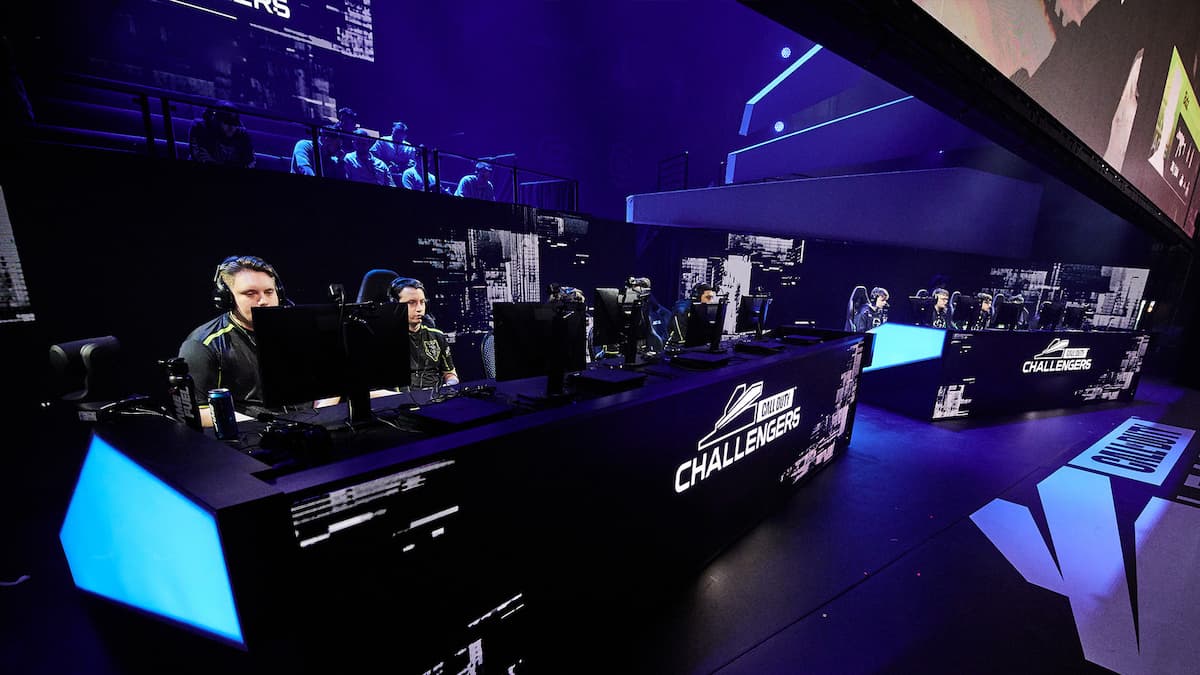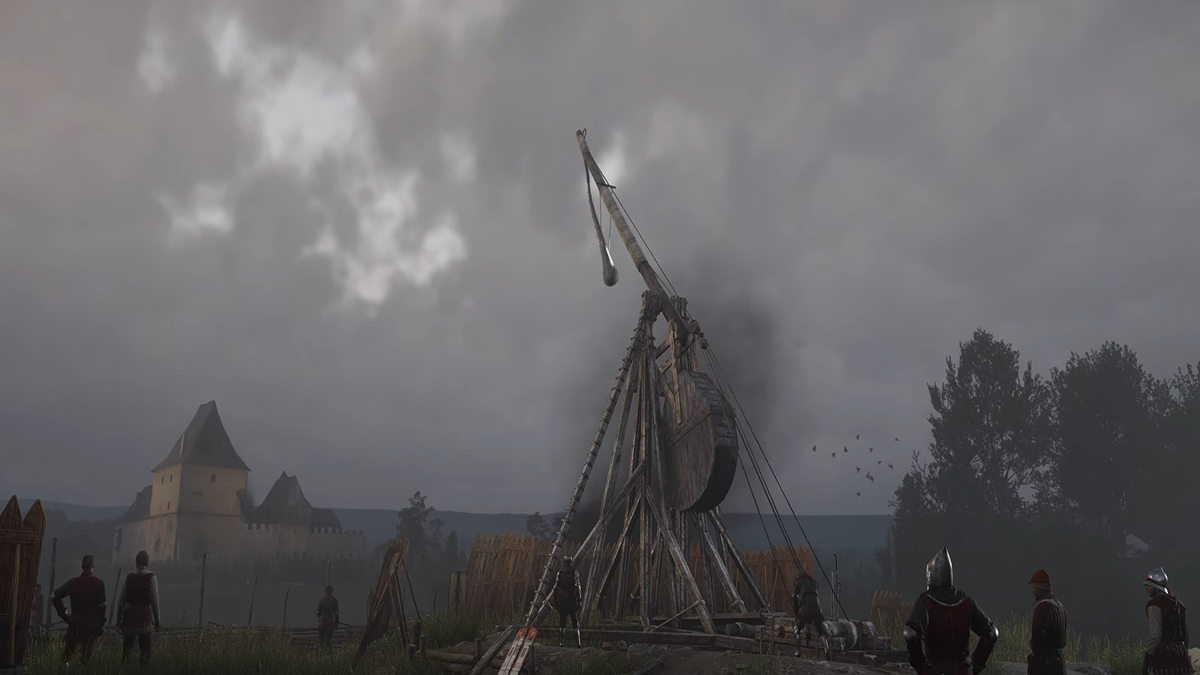It appears to have some soul, but I’m still suspect
The last few times we’ve written about Murdered: Soul Suspect, the discussions centered around next gen ports. Well, that and the protagonist’s unfortunate choice of head wear and other accoutrements. I mean, the fedora is somehow not the most egregious fashion choice. Wallet chain?
But now I’ve gotten a chance to play and have a bunch of different things to complain about.
Murdered: Soul Suspect (PC [previewed], Xbox 360, Xbox One, PS3, PS4)
Developer: Airtight Games
Publisher: Square Enix
Release: June, 2014
One design element to questionably-realized-cool-guy protagonist Ronan O’Connor does get established early, when his life flashes before his eyes, and his tattoos begin marking the significant events in his life via a series of flashbacks. They aren’t just for show, so at least part of his look was given consideration, rather than kitchen-sinked on.
See, Ronan grew up hard. He was a criminal. But then he found love and straightened up his act, somehow managed to get a job as a detective despite his criminal record. And then his wife tragically died, of course, and he went back to being a loose canon. Which got him killed. Thrown out a window (in a lovely scene).
You first take control of Ronan in a weird scene that I hoped was a harbinger of gameplay to come. “I just have to get back into my body,” Ronan deduces, and you’re tasked with awkwardly lining up ghost Ronan’s head and limbs with the crumpled fleshy Ronan. It almost works, too, until your assailant makes their way down stairs and shoots the hell out of him with his own gun. Now it’s time to solve your own murder.
Murdered started sort of weird. There were strange, slow scenes, like pushing forward on the analog stick to slowly reach toward a door handle. I wasn’t sure how I felt about these bits, but they stuck with me. The rest of what I played, however, quickly abandons these control quirks for a less scripted, more typical “roam around in third-person (except you’re a ghost)” set up.
Ronan gets briefed on the supernatural backing to the Salem-based game — narrative explanations for why he can’t freely walk through everything, for example. Being able to walk through walls actually almost didn’t make it into the game as early prototyping saw how disorienting it could be to phase in and out of closets and lose your bearing. But what’s the point of being dead if you have to use doors?
After exposition and intrigue (Ronan is stuck in a dangerous, demon-filled limbo because something in his life is unfinished), Fedora Man is off to solve his own murder, which is where things get a bit sticky for me.

At the scene of your murder, the bottom of the screen reads “0/8,” telling you how many clues there are and how many clues you have discovered. Therein lies the difficulty of making a true detective game like I’m always clamoring for. It halts progress. It can be frustrating. It dead ends your narrative. You have to be able to lose, and possibly start over. But it’s nice when a game has the guts to go for it.
There is no fail state. Rather, you have three blue pips when you need to make a choice — perhaps pick which clue to influence into the mind of a possessed witness. Choose wrong, you lose one. You can lose all three. You’ll probably just miss some achievements or maybe look silly to your friends. But there’s not much punishment for cocking up if you end up needing to take a brute-force approach.

There are some things meant to help keep investigation from feeling like a checklist. There are various persons to possess whose minds you can read. There are occasional stealth sections that have you sneak up on soul-sucking demons and rip their ghost spines out with quick-time events. There are sidequests meant to help give other ghosts you meet closure. There are extraneous clues at scenes and it does actually ask you to think about what you collect, what’s pertinent. There is an everlasting ghost cigarette Ronan can’t shake, speaking to the nature of addiction.
But it’s not a detective game, which is sad to me, because it’s what I was holding out for. Rather, it’s more of an exploration-based narrative game. You play the ultimate voyeur, getting into peoples’ bodies and minds, whether or not they have anything to do with your case. It seems mostly about wandering about as a ghost in between bits that will drive the narrative and finger your culprit as you unravel the ghastly elements, weird glyphs, and history of Salem. It’s all related, assuredly.
At that point, it’s really on the story-telling to deliver all the way through and make dying worthwhile. We’ll have to wait until June to know for certain.




